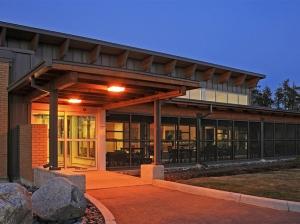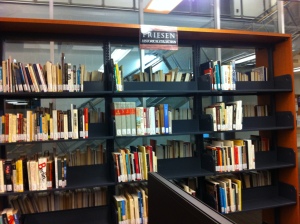

I was deeply touched yesterday by two old friends – Paul Mason and Ron Graham – and the insights they shared on Facebook on Paul’s timeline about the reality of aging parents and the choices we all will or have faced as grown sons and daughters in that regard. My friendships with Ron and Paul dates back to the mid-1970s at Trent University in Peterborough, Ont. Almost 50 years on, I still cherish their wisdom and empathy – as well as the ongoing and civil religious debates between us.
As Paul writes, “There’s something unnatural about a community made up predominantly of old people. Yes, there are plenty of young and middle-aged staff, several of whom I’ve come to know and like very much, but everywhere one looks there’s evidence of ill-health and decrepitude. Visiting a seniors’ residence swiftly dispels any illusions one might have about the ‘golden years.’”
At some level, I agree. I, too, think it deeply unnatural that old people live together in community alone. Unless perhaps you don’t have that option. The Northern Spirit Manor Personal Care Home in Thompson, Manitoba opened months before I arrived here in 2007, built in no small part through volunteer community fundraising. Now, grandparents, and other elders, can remain in the community, closer to their children and grandchildren, an unbroken circle. That matters to us here deeply.
Still, I get the servicing model for older folks, both here and in the south, especially in terms of medical needs, that makes a facility such as where Paul’s mom now resides a reasonable choice. And I also understand there are often difficult, if not near impossible, choices involved. In the Summer of 1989 I was married to Heather, who was accepted into the PhD program in cultural anthropology at Duke University in Durham, North Carolina for September of that year. Heather has gone on to become an associate professor in women’s studies and cultural anthropology at the University of Illinois Springfield.
My parents had moved to Bridgenorth, Ontario in 1980 while we were living in Boston. My mother died in 1986 after a year-long illness. While she spent that year in and out of hospital, she continued to live at home in their apartment in Bridgenorth, just north of Peterborough on Chemong Lake. My father’s homecare efforts, while supported by provincial homecare staff and doctors, still to my mind, became Herculean. My dad’s idea of cooking, up to that point, had been summer barbecuing, which he was quite skilled at. Overnight, quite literally, he took over the marital indoor domestic cooking in the kitchen, as well as cleaning and laundry chores without complaint, and also attending to my mother’s personal needs, while in mixed health at best himself. There was absolutely nothing in my dad’s background up to that point that would have suggested to me he could rise to the occasion such as that. He wasn’t a saint or a martyr, but his unexpected and surprising example still serves as a lodestar pointing to the meaning of unconditional love in my eyes. He continued to live in the apartment in Bridgenorth after my mother died as a widower for three years from 1986 until 1989.
By 1983, we were living in Canada again, and Heather began a master’s program at the University of Western Ontario in London. She spent from September 1983 to August 1984 in London, and then followed me to Toronto and Peterborough for the next five years from 1984 to 1989, as I spent most of the early years of my journalism career at Ontario Lawyers Weekly and the Peterborough Examiner, after starting at The Standard-Freeholder in Cornwall, Ont. in June 1983. We agreed in March 1985, when we moved back to Peterborough, having spent several years there earlier as undergraduates at Trent University, the next move would be where Heather wanted to be, wherever that might be. My dad and Heather got along well. My parents treated her as a daughter, and she was fond of both of them. In fact, in August 1987, my dad was planning a trip to Indiana to visit my Uncle Bob and Aunt Joan. I was working, and Heather’s thesis defence coincided with my dad’s trip, so he drove her to UWO in London, where she showed him all around campus for a day before he continued his journey to Indiana. I chuckled later when he also told me he had got his first VISA card shortly before in 1987 for gas and hotels on the trip, as gas/oil company cards, which he did have a few of, were starting to disappear by the late 1980s.
Fast-forward two years from 1987 to 1989. My dad’s health had declined some, but he was still living in his apartment in Bridgenorth and driving, Heather, meanwhile was on the cusp of starting at Duke in North Carolina. And I was working still at the Peterborough Examiner, faced with the likely choice of being near my spouse, or my father, who was still living at home, but showing signs he might need to move to a retirement home sooner than later. Yet, his decline wasn’t linear, although he was starting to spend more time in hospital by the Spring of 1989; a few days here, a few days there. While he was in hospital for his 70th birthday on July 13, 1989, he was well enough for to go out for a birthday dinner at the Ponderosa Steakhouse on Chemong Road in Peterborough on a day pass. My dad was a Ponderosa aficionado (along with Dixie Lee Fried Chicken). But there were warning bells. Around the same time, he asked for my help for the first-time in his life writing a cheque, in this case to pay his Ontario Hydro Bill.
He died exactly a month later on Aug. 13, 1989. I gave my two weeks notice at the Peterborough Examiner and moved to North Carolina with Heather. I returned to work at the Peterborough Examiner as a reporter in the old Hunter Street second-floor newsroom almost eight years later in April 1997. Jack Marchen was still sitting directly across from me and Phil Tyson beside me.
Back in 1989, Heather and I had spent the summer looking around Peterborough and surrounding area for a possible retirement home for my dad to move to, although we hadn’t reached the point of broaching the subject with him. All of this was a very long time ago (I was 32 years old), but I have two still distinct memories. One is of being overwhelmingly depressed by the cumulative effect of visiting such facilities. The other is a particular memory, although which retirement home it was, mercifully escapes me 34 years later. What I do remember with clarity is seeing a group of retirement home residents at a place Heather and I were checking out, sitting in their wheelchairs in eerie silence, eyes glued to the overhead communal television set. Heather and I used to say afterward, only half-jokingly, that my dad had known when to make his exit.
My own thoughts on aging gracefully, aging well, wherever you may live, might be summarized thusly: If you can, be mellow, be grateful. Much easier said than done, I know from personal experience, if you are sick or otherwise in pain.
First, some words on mellowing with age: As a young reporter, and even much later as an editor, I several times came very close to quitting newspaper jobs as a matter of principle over some story, editorial or column dispute with my bosses. While I still think there are times when that is the only appropriate and ethical thing to do, I have come to realize they are probably few and far between, and ego and arrogance were bigger factors driving my soapbox fury than I realized at the time.
My gratitude has also increased with age. Reality can be sobering. I have two first cousins who lost their husbands last year and are now widows. In the Knights of Columbus, our fraternal Latin motto is “tempus fugit, memento mori,” which translates in English to “time flies, remember death.” When I was tempted to think of counting a cash drawer at the hotel (regularly) for seven years until last summer, or at the university college library (occasionally) still, as tedious tasks, I usually catch myself and think something to the effect of thank God that I am still blessed with the cognitive skills (aided by a pocket calculator) to count the cash. The late Vietnamese Buddhist monk Thích Nhất Hạnh, who died in January 2022 at the age of 95, had many useful things to say over many decades of teaching on mindfulness and seemingly ordinary and mundane tasks. If you’re still able to look them up, count yourself fortunate.
You can also follow me on Twitter at: https://twitter.com/jwbarker22

